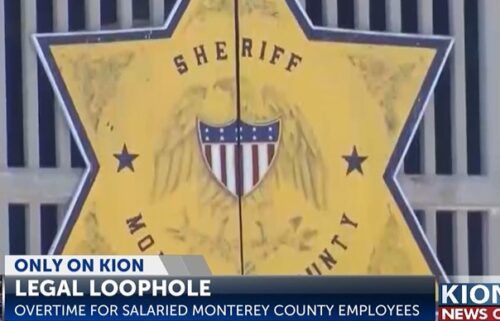PG&E warns of increase in scam attempts on Central Coast
CENTRAL COAST, Calif. (KION-TV)- PG&E says that they have received a higher than normal amount of reports of scammers during the holiday season in Northern California and the Central Coast.
"Scammers are taking advantage of the holiday season to defraud consumers in increasingly sophisticated schemes." said Mayra Tostado, a PG&E spokesperson. "While prevalent year-round, financial scams pick up during the holiday season when busy customers might be off their guard and become easy victims for scammers pretending to be PG&E employees."
In 2022 PG&E says it received reports of scam calls from 23,000 customers. They say these individuals pretended to be with the company and cost customers a combined $1.3 million in fraudulent payments.
That number was a sharp jump from even 2021 when 11,000 were reported in that calendar year.
Central Coast cities with the most reported scam calls were Salinas, Santa Cruz and Watsonville.
“Avoiding a scam is as simple as hanging up the phone. If you ever receive a call threatening disconnection if you do not make immediate payment, simply hang up and either call PG&E to confirm your account details or log onto your account on PGE.com. Remember, PG&E will never ask for you for your financial information over the phone or via email, nor will we request payment via pre-paid debit cards or other payment services like Zelle,” said Aaron Johnson, PG&E Bay Area regional vice president."
PG&E says these are signs to look out for in assessing potential scams:
- Threat to disconnect: Scammers may aggressively demand immediate payment for an alleged past due bill.
- Request for immediate payment: Scammers may instruct the customer to purchase a prepaid card then call them back supposedly to make a bill payment.
- Request for prepaid card: When the customer calls back, the caller asks the customer for the prepaid card’s number, which grants the scammer instant access to the card’s funds.
- Refund or rebate offers: Scammers may say that your utility company overbilled you and owes you a refund, or that you are entitled to a rebate.
Customers can protect themselves by looking out for the above.
PG&E also warns customers that scammers can now impersonate trusted phone numbers and make authentic looking 800 numbers that appear on their phones. The easiest way to check is to call the number back as it should not lead back to PG&E.
For more information on PG&E scams, click here.



